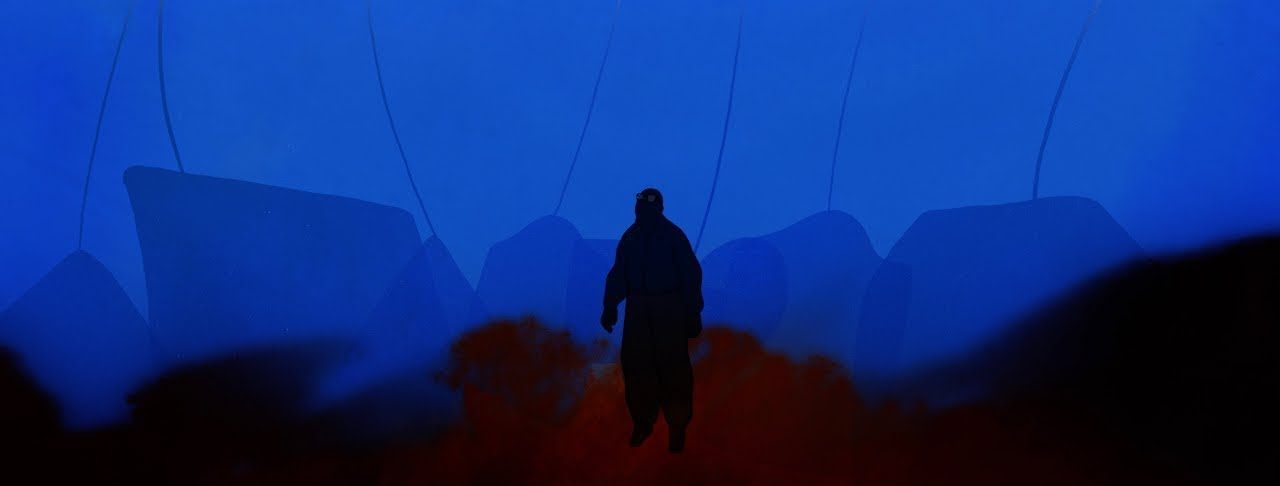
Film
Words by Reilly O’Byrne-Inglis
Anecdotes by Don Ritchie
Content Warning: This article discusses issues related to suicide. For information and support on issues raised please contact the following services: Beyond Blue, Lifeline.
“Sharing a cup of tea was the bravest bloody thing you could do”.
If you come to Teacups with no knowledge of its plot or content, you will know where you are as soon as Hugo Weaving’s rich voice speaks the first line; “I used to live up on a cliff where people came to die”. I can’t speak for all Australians but to me, The Gap and Don Richie have always been present. The Gap holds immeasurable weight, mostly enveloped in fear and sadness. Until we speak of Don Richie, a Veteran of the Royal Australian Navy who officially saved 160 lives in his time, although his family claim the figure is closer to 500.
Richie’s life wears the weight of ‘if not you, then who’. He did not seek to be caretaker of The Gap and its visitors, he was not officially appointed, Richie just saw people who needed his help and let his kindness guide him. Through conversations, cups of tea, and reaching out, Don Richie showed us all how we could be heroes; “it’s as if sharing a cup of tea was the bravest bloody thing you could do.”
Teacups captures Richie’s approach immaculately. There is nothing heavy-handed about this short which gently holds our hand throughout the 7 minutes and 40 seconds, much the way Don Richie and his wife Moya held the hands and troubles of those countless lives they saved. Teacups envelop us in this extraordinary man’s warmth and understanding in every way, through viscerally textured imagery and music that swells up to hold us wherever and however, we may be.
Before creating the film, the team took part in mental health and suicide prevention courses, and it shows. The film’s Associate Producer, Alexander Mayo, reflects; “Often in a film, suicide is a narrative crutch…we wanted to avoid that by dealing with the subject matter with the sensitivity and honesty required”. I honestly thank the creators of this film for this from the bottom of my heart. Seeing people’s deepest struggles sensationalised on screen is alienating for those whose stories are being told. I couldn’t tell you how many films tell stories similar to mine and my loved ones that I cannot watch, not because of the subject matter, but because of the telling. We need these stories told and we need to be a part of them whether it be as makers or audience members.
The Writers and Directors, Alec Green and Finbar Watson strike an exceptional balance here. While the film does not shy away from the pain and terror felt by those Don saved, Teacups chooses to emphasise other areas. Closeups on teacups as the comforting brew swirls, hands held, Don’s watchful eyes, remind us of the small things that keep us living, that kept those at death’s door living. As Don put it; “something as simple as tea could help us on our way back”.
These images do turn, however, in ways that remind us of the gravity and raw human experience at the heart of the film. A teacup swirls red and a bloodlike splash crashes across the screen, a Navy Sailors cap plunges into the depths. Across the board colour plays an integral role in this film, as it does in our feelings and certainly in trauma. Reds and blacks take us to the place where death is knocking, a dark figure silhouetted against a crimson sky as Don approaches. Don’s touch or presence turns these hues to blue and then to a rainbow of people and teacups as he reflects on those who “returned to the place they came to die”.
The animation, by andmapsandplans mixes styles but all have a sense of immediacy through visible brush and pen strokes making it feel like these images are being painted before our very eyes. We are swept through dreams, nightmares and waking moments often gently and sometimes in a flurry. Nothing is there to unsettle or frighten, but merely to invoke the complexity of this deeply human experience.
This feels like a film made for those Don saved, those who breach those dark places and those who never resurface, made for Don Richie.
Loves Nailed It!, Confusing Experimental Theatre, Dave Bayley’s Falsetto, Botanical Drawing, and a mean Smoked Gouda.